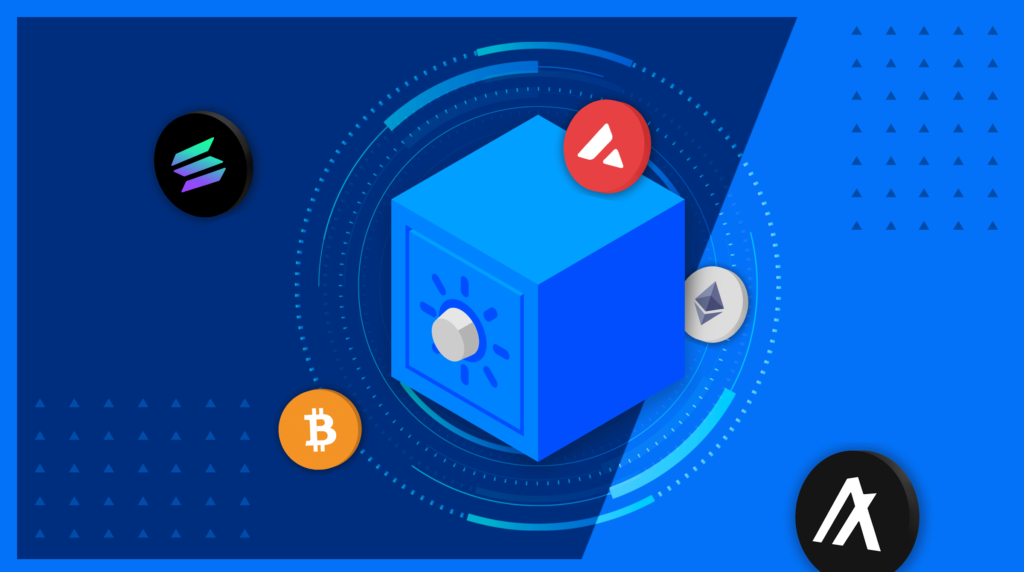In 2022, many financial institutions across the globe are investing in digital assets. The crypto market now has a market cap of more than $2 trillion, and the number of crypto wallets has ballooned to 260 million.
If your organization is looking to invest in the space – or already has – you may be wondering, “Do we need a ‘qualified cryptocurrency custodian’ to hold our digital asset investments?”
However, this terminology (“qualified custodian”) is more specific than those who use it in a conversational or colloquial context might realize. In fact, correct usage of the “qualified custodian” terminology is fairly limited, and may not be applicable to some organizations who assume they need one.
In this article, we’ll walk you through where this term comes from, who it really applies to, how crypto RIAs can be involved, and how this applies to Fireblocks.
What exactly is a qualified custodian – and do I need one?
While there are some exceptions, under the US Investment Advisor’s Act of 1940, “investment advisors” are typically required to register with the SEC, and to hold client funds or securities with a “qualified custodian” in segregated accounts.
Let’s dig into what some of these phrases mean specifically.
Federal law defines a registered investment advisor (RIA) as someone who advises clients on investing in stocks, bonds, and other securities as a business. Investment advisors have the authority to make investment decisions for clients, such as what securities to buy or sell. This definition tends to include all hedge fund managers – especially managers of large hedge funds.
Who can we consider a qualified custodian? This term generally includes:
- Banks
- Broker-dealers
- Futures commissions merchants
- Certain foreign financial institutions that customarily hold and properly segregate financial assets for their customers
The purpose of this “Custody Rule,” as stated by the SEC, is to provide protection for client funds or securities against the possibility of “being lost, misused, misappropriated or subject to investment advisors’ financial reverses, including insolvency.”
Of course, there are also exceptions to the rule itself, depending on assets under management, geographic location, and the type of assets your organization is working with.
Does this apply to digital assets and crypto?
Digital assets are extremely different from traditional assets, particularly physical assets, in terms of appropriate security measures.
While a traditional asset such as cash or stock certificates may be held by a qualified digital asset custodian in a safe or lockbox, a digital asset custodian is holding a client’s private key information (this is recorded on the blockchain) – versus a physical asset.
This distinction is important. Although broker-dealers are qualified custodians holding fiat currency or equities, they typically rely on sub-custody services, meaning their custody of an asset is merely the representation of ownership of the underlying asset.
By contrast, the qualified cryptocurrency custodian is actually holding both the private key and the underlying asset. It’s a fundamentally different model of custody and one that prioritizes having the most secure technology from a fiduciary perspective.
The safety and security features that qualified custodians have used to store physical assets would be inapplicable and ineffective for digital assets. A steel vault guarded by a thick titanium door and a complex electronic lock may provide strong security benefits for storing cash or gold. But these features are immaterial in the safeguarding of digital assets secured by a private key, which requires advanced security features – such as the Fireblocks’ custody technology platform.
Can my crypto RIA work with Fireblocks?
While Fireblocks is not a qualified cryptocurrency custodian (as qualified custodians consist solely of banks, broker-dealers, futures commissions merchants, and certain foreign financial institutions), there are certain ways for crypto RIAs to work with Fireblocks to accomplish their business objectives and guarantee the safety of digital assets while remaining in compliance with applicable laws. In fact, a high-grade custody technology solution like Fireblocks can be essential in meeting the fiduciary responsibilities a custodian has for securing their clients’ assets.
If you’re interested in learning more, reach out to start a conversation about how you could benefit from working with Fireblocks – even if you’re legally required to store assets with a qualified cryptocurrency custodian.
This blog post is distributed for general informational and educational purposes only and is not intended to constitute legal, tax, accounting, or investment advice. For other important disclosures. View the full disclosure notice here.



